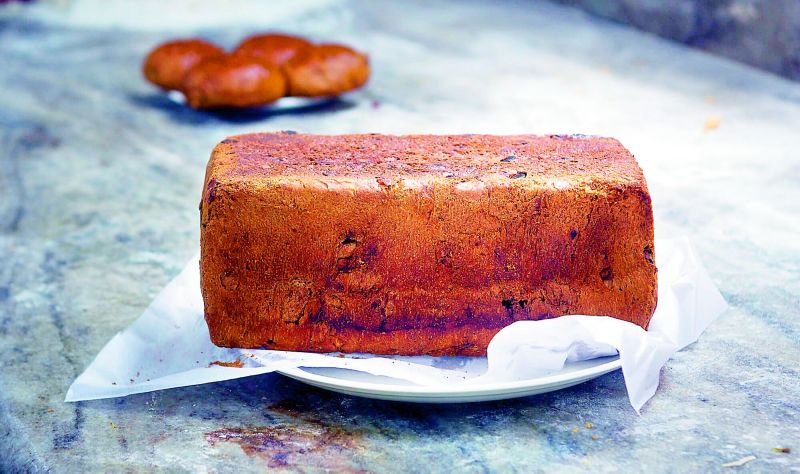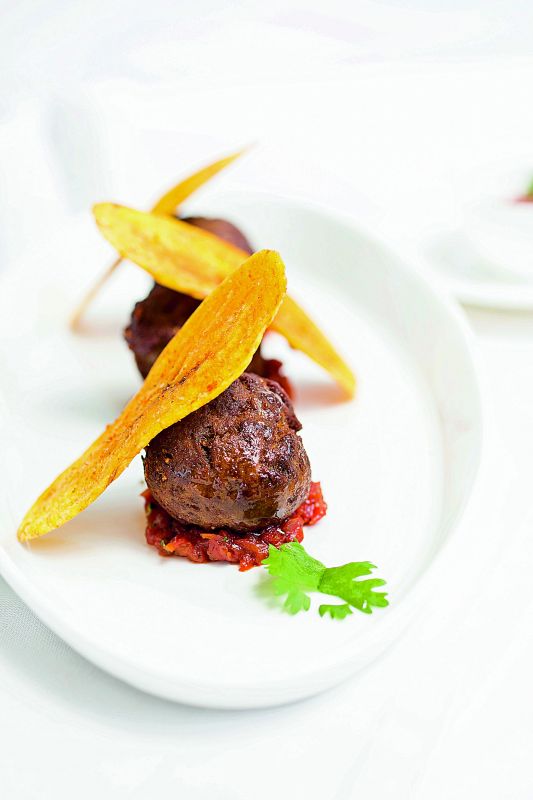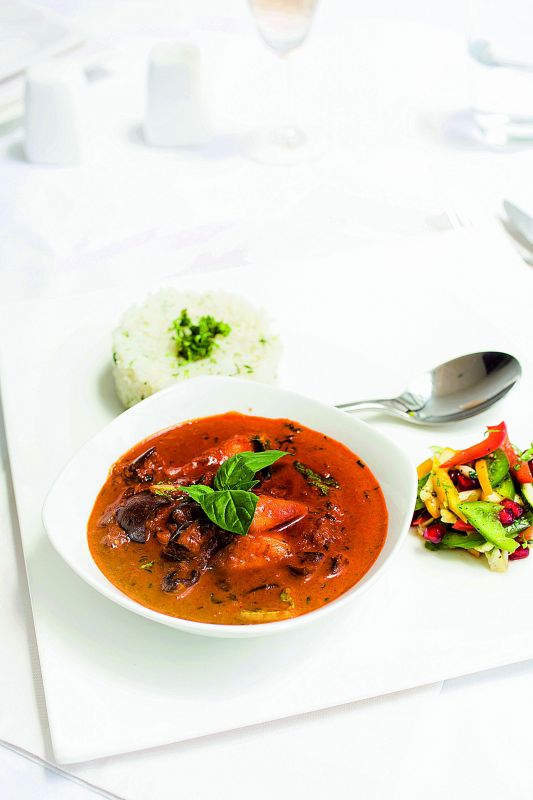Culinary memories of colonial era
Distinctive cooking styles have evolved in Fort Kochi from the intermingling of colonial influences and local ingredients.

There’s a lot more to colonisation than just establishing control over the indigenous people of an area. It leads to the intermingling of cultures, traditions and even cuisines. Fort Kochi was a Dutch colony for more than a century and this, in turn, had many effects on the culinary landscape of the place. The distinctive cooking styles and ingredients of Fort Kochi cuisine were interestingly mixed with those of the Dutch cuisine, creating some lip-smacking delicacies that are found nowhere else in the world. Legend has it that there were seven bastions in Fort Kochi, built by the Portuguese and strengthened by the Dutch. Here are some recipes that will take you to the Dutch era yet keep every bit of the taste of Kerala cuisine very much alive. These include improvised versions of some old favourites, hand-picked from the ring of Indian Ocean spots that witnessed Dutch influence from the early 1600s. Eclectic as the cuisine is, it uses local ingredients, particularly the famed spices of Kerala and is a fusion play of a high order.
CHINGRI MACHER jhol
Chingri macher jhol is a Bengali prawn curry with a Dutch influence. Preparation with panchphoran, mustard oil served with hing tempered yoghurt tomato.
(Yield: Four portions)
Ingredients
800 gm of deveined tiger prawns
1/4 tsp turmeric powder
12 gm chopped garlic
10 gm chopped ginger
125 gm chopped onion
65 ml coconut milk
½ +1 pinch scrapped coconut
1 tbsp mustard oil
1 green chilli
1/4 tsp cumin seeds
1/4 tsp mustard seeds
1/4 tsp red chilli powder
1 tbsp cumin powder
1/4 tsp garam masala powder
1/4tsp sugar
1 tbsp ginger-garlic paste
Method:
Marinate the prawns with salt and turmeric powder for 15 minutes.
Heat 3 tbsp mustard oil in a non-stick pan. Add prawns and sauté for 1 minute. Transfer them to a bowl. Heat remaining oil and add mustard seeds, cumin seeds and fennel seeds. When they start spluttering, add green chillies, ginger-garlic paste and grated coconut. Sauté for a while. Add red chilli powder, cumin powder, garam masala and a pinch of sugar to balance the flavours. Mix well and cook for few minutes.
Remove the pan from heat and grind the contents to a fine paste.
Transfer the paste to a pan; add enough coconut milk and the prawns.
Cook it till the gravy thickens and prawns are done.
Serve hot with cilantro pulao, hing tempered tomato and pineapple chutney.
Cilantro rice
Ingredients
180 gm Kaima rice
125 ml ghee
4 cloves
4 cardamoms
1/4 tsp peppercorn
1/2 piece cinnamon
50 gm sliced onion
10 gm chopped coriander leaves
Salt to taste
Method:
Heat ghee in a heavy bottomed pan and sauté the spices and onion. Add rice and stir for a while.
Pour the stock and cook the rice. Add salt. When the rice is cooked and water evaporated completely, add coriander leaves.
Hing tempered tomato
Ingredients
125 ml curd
5 ml oil
2 gm mustard seeds
1 whole red chilli
1 sprig curry leaves
1 gm hing
5 gm finely chopped coriander leaves
Salt to taste
125 gm thick sliced tomato
METHOD
Heat oil in a pan, add mustard seeds and allow it to splutter.
Add red chilli, curry leaves and hing powder to the oil. Remove the pan from heat and transfer the contents to a bowl.
Cool it in room temperature and add curd, coriander leaves, tomato and salt.
Pineapple chutney
Ingredients
125 gm pineapple chopped
12 ml mustard oil
1 gm panch phoron1 gm crushed red chilli
Salt and sugar to taste
METHOD:
Grind all the ingredients togther into coarse paste and serve.
Food of the settlers
The colonial visitors to Fort Kochi brought many things to comfort them on their long trading spells away from their homeland. One such is the Breudher bread that is a Dutch speciality, which is the bestseller in the menu of East Indies. However, the recipe for this sugar-plum loaf that has its name derived from the Dutch word for bread ‘broodje’ is a long-kept secret. Authentic Breudher bread is baked only at the little-known Quality Bakery in Fort Kochi. The Anglo-Indians call it the Dutch cake and its close derivatives are still very popular in the erstwhile Dutch-colonised parts of Sri Lanka. Breudher has a distinct flavour and a lingering aroma. Its texture is more like bread whereas the flavour is more like a cake, especially the Kerala plum cake. Maida, sugar, eggs, butter/ghee, yeast and raisins are the key ingredients in this breakfast cake eaten on festive days, especially Christmas mornings. The recipe has many local variants based on minor changes in the ingredients used. The most unique and interesting part is the way it is eaten. Though it is still unknown if the style was introduced by Malayalees or the Dutch, in Kerala, it is enjoyed with the green Kerala banana.

FRIKKADAL
Frikkadal, also known as frikadeller, is one of the most popular national dishes in Denmark. Its a preparation of ground lamb, beef, lemon grass, fenugreek, tomato
(Yield: Four portions)
Ingredients
75 gm minced beef
75 gm minced lamb
25 gm breadcrumbs
12 gm chopped onion
7 gm chopped ginger
2 gm cinnamon powder
2 gm pepper powder
Juice of 1/2 lime
Paprika powder according to taste
250 ml oil for frying
Salt to taste

EGGPLANT AND MUSHROOM RENDANG
Eggplant and mushroom cooked in Indonesian coconut based gravy, seasoned with lemon grass
Soya and tamarind with lemon rice
Yeild: Four Portions
Ingredients
125 gm zucchini
125 gm button mushroom
125 gm eggplant
3 star anise
3 lemongrass stems
2 kaffir lemon leaves
5 gm chopped cilantro
3 tsp grated coconut
125 ml coconut milk
25 ml soya sauce
13 gm crushed coriander
5 gm turmeric powder
2 gm paprika powder
13 gm palm sugar
25 gm tamarind pulp
Salt to taste
65 ml oil
200 gm boiled rice
2 lemon

Method
Pan fry the mushroom, eggplant, and zucchini.
Sauté the star anise in 1 tbsp oil and add crushed lemongrass stem, ground coriander, lime leaves, coconut, the spice powders, tamarind pulp and some water. Cook the contents in the pan for a while.
Take out the lemongrass stem and lemon leaves, mix coconut milk to the pan fried vegetables. Add chopped coriander leaves. Mix well and serve hot with lemon rice (mix the hot rice with cilantro, lemon juice and salt) and salad.
Mix salad
7 gm shredded spinach
7 gm shredded lettuce
7 gm shredded zucchini
20 gm shredded bell peppers
6 gm wedges of cherry tomato
6 gm coriander leaves chopped
6 gm pomegranate seeds
Salt and pepper
Vinaigrette dressing
Mix all ingredients in a bowl to make the salad.
For the sauce
5 gm chopped garlic
5 gm chopped ginger
3 gm chopped green chilli
25 gm chopped onion
25 gm blanched and chopped tomato
Salt and pepper powder to taste
1/4 tbsp honey
1/2 tbsp tomato puree
For chips
1 raw banana
25 gm dry shrimps powder
Refined oil for frying
Method:
Season the meat with salt, pepper and cinnamon. Add all the remaining ingredients and mix well. Make small meat balls each weighing 25 gm. Deep fry the meat balls until golden brown.
For the sauce, heat oil in a pan and sauté ginger, garlic, green chilli and onion. Once the contents change colour to a light brown, add chopped tomato and sauté well. Add tomato puree with little water or stock. Once the stock is cooked and thickens, add honey, sugar and seasoning.
For chips, deep fry the banana slices in hot oil, and dust with dry shrimps powder.
Recipes by Executive Chef Mathai Thomas, from the restaurant East Indies, in CGH Earth’s Eighth Bastion hotel
